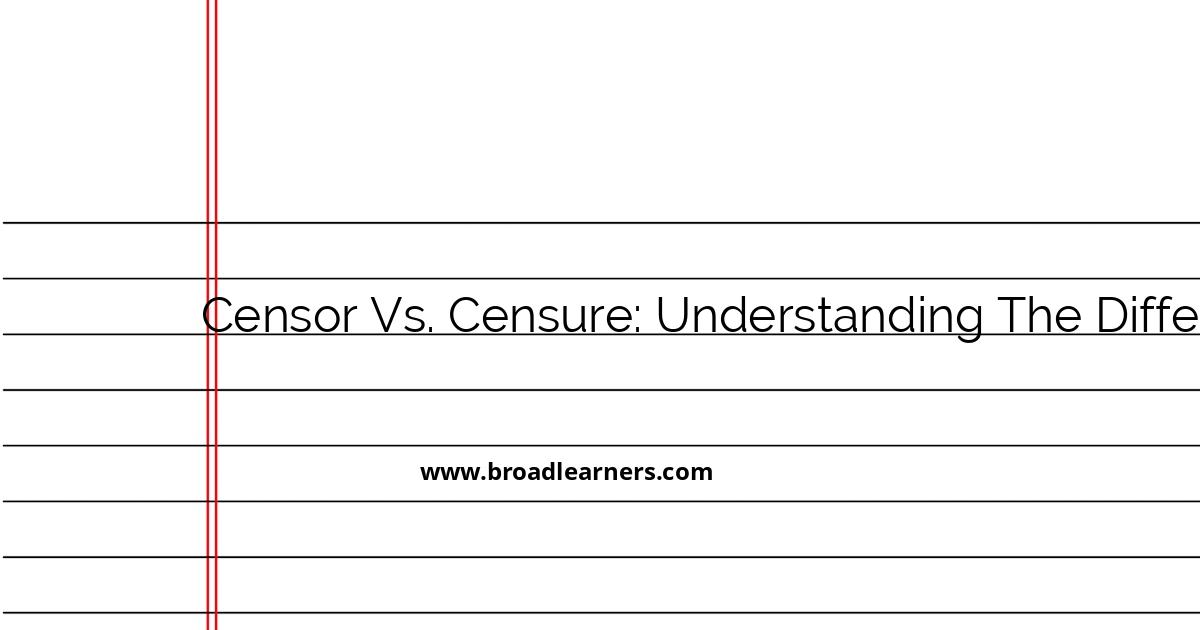In the English language, it's common to come across words that sound similar but have entirely different meanings. Two such words are "censor" and "censure". This article aims to clarify the differences between the two and provide examples to help you use them correctly in sentences.
Definitions
- Censor
- The term "censor" is a verb meaning to examine and suppress unacceptable parts of a book, film, or other media. As a noun, it refers to a person who performs this suppression. The primary goal of censorship is to control or limit the dissemination of information deemed inappropriate or offensive.
<dt><strong>Censure</strong></dt>
<dd>"<strong>Censure</strong>" is typically used as a verb meaning to express severe disapproval of someone or something, usually in a formal statement. As a noun, it refers to the expression of formal disapproval. Censure is often employed in legal, governmental, or organizational contexts to reprimand or criticize behavior or actions.</dd>
Examples
Using "Censor" in a Sentence
-
Verb: The government decided to censor parts of the documentary that contained controversial political statements.
Example: "In an effort to maintain public order, the council voted to censor the film's release until certain scenes were removed."
-
Noun: As a censor, he was responsible for reviewing the book for any offensive content before publication.
Example: "The censor rejected the movie's script on the grounds of inappropriate language and graphic violence."
Using "Censure" in a Sentence
-
Verb: The board agreed to censure the director for his repeated violations of company policy.
Example: "The senator was censured by his colleagues following accusations of misconduct."
-
Noun: The actor received a public censure for his inappropriate remarks during the interview.
Example: "The committee's censure reflected the severity of the actions taken by the officer."
Tips for Remembering the Difference
- Contextual Clue: Consider the context in which each word is used; censorship typically refers to material content, while censure deals with disapproval of actions or behaviors.
- Synonyms: Recall that "censor" is like "suppress," while "censure" can be related to "criticize" or "rebuke."
- Audience: Consider who the term is being directed at or discussing; works of art and media are often censored, while people and actions are most often censured.
By understanding the distinct meanings and uses of "censor" and "censure", you can avoid common errors in communication and present your ideas more effectively.

Did I miss anything? Respond below